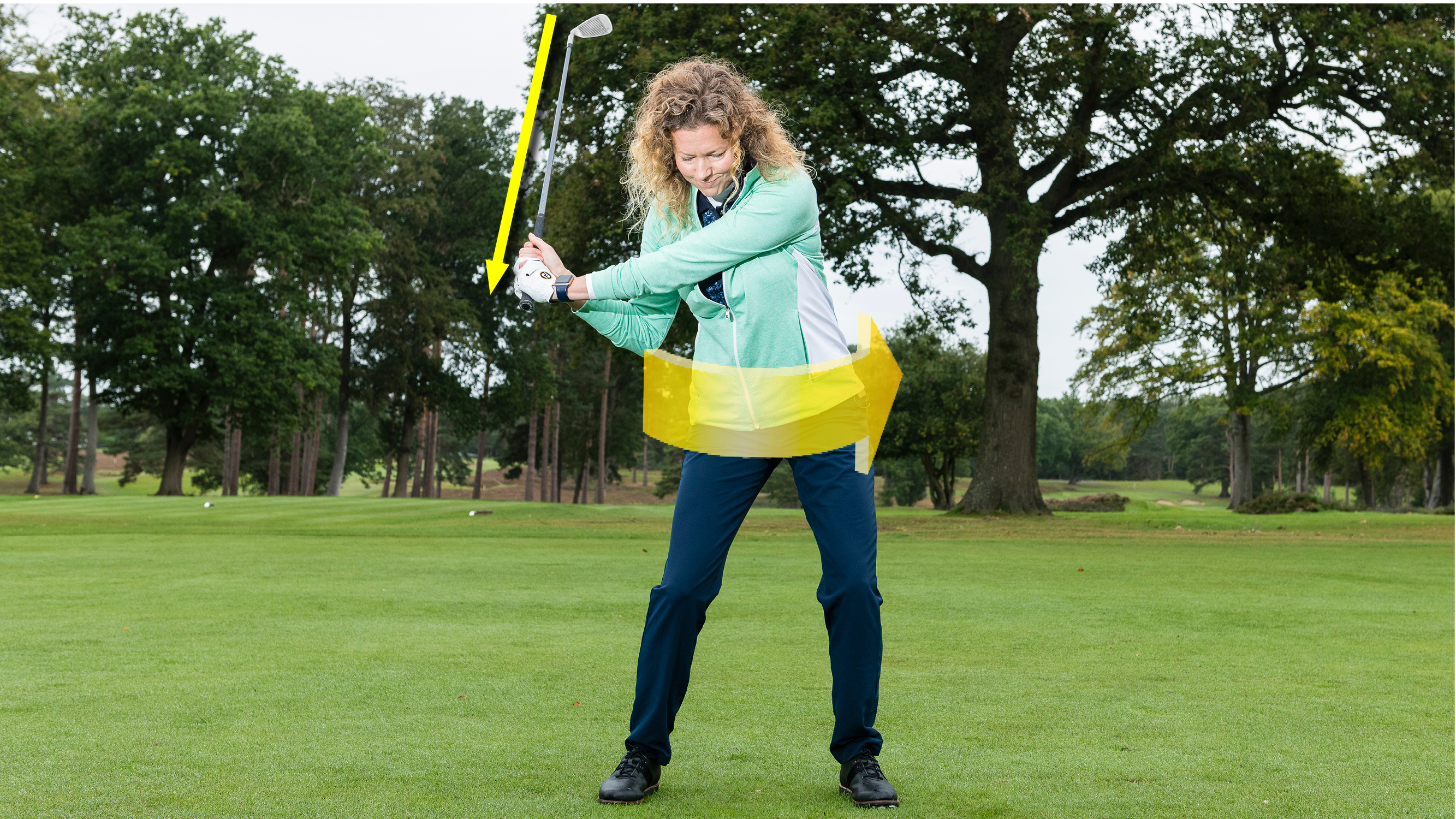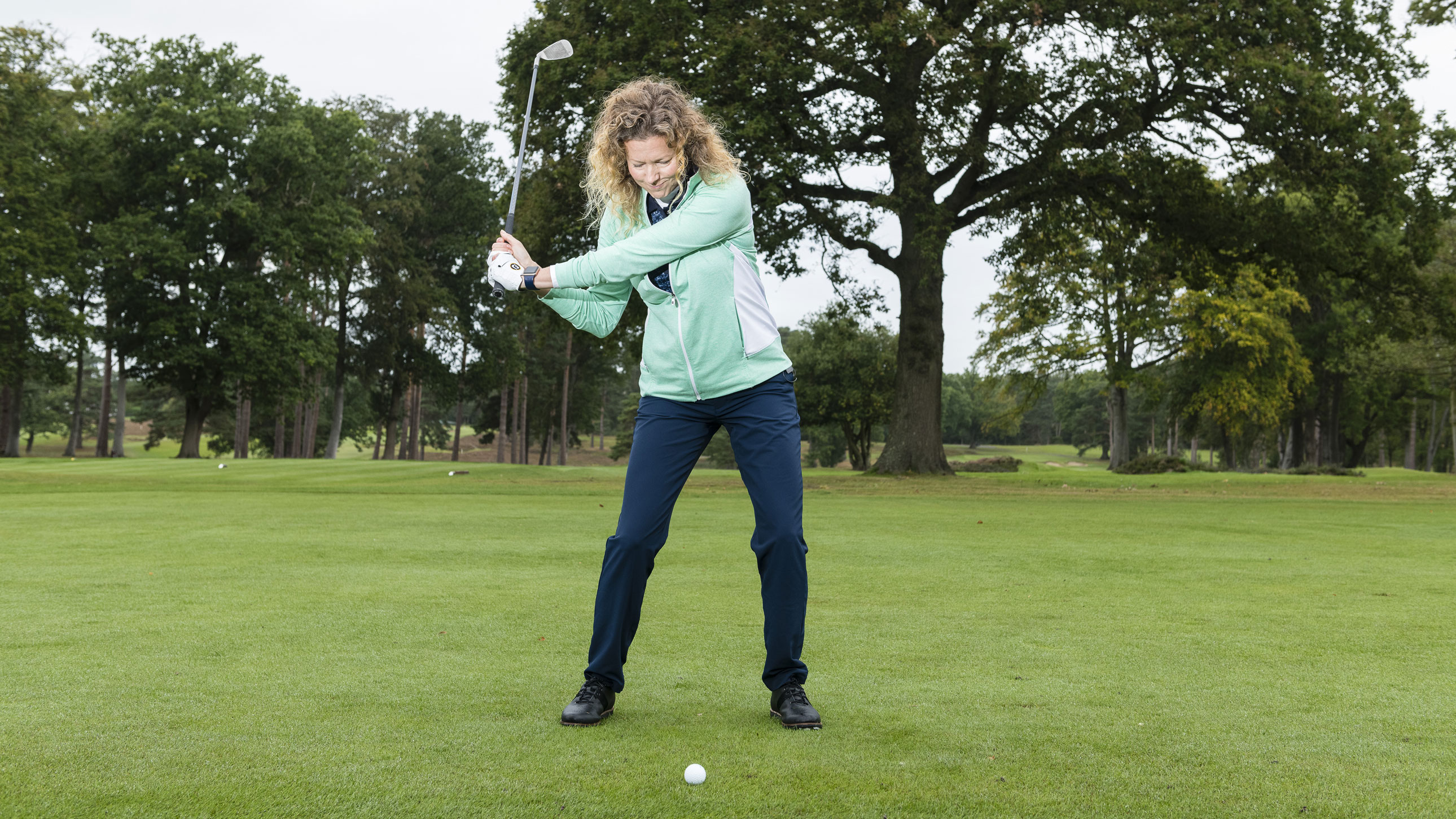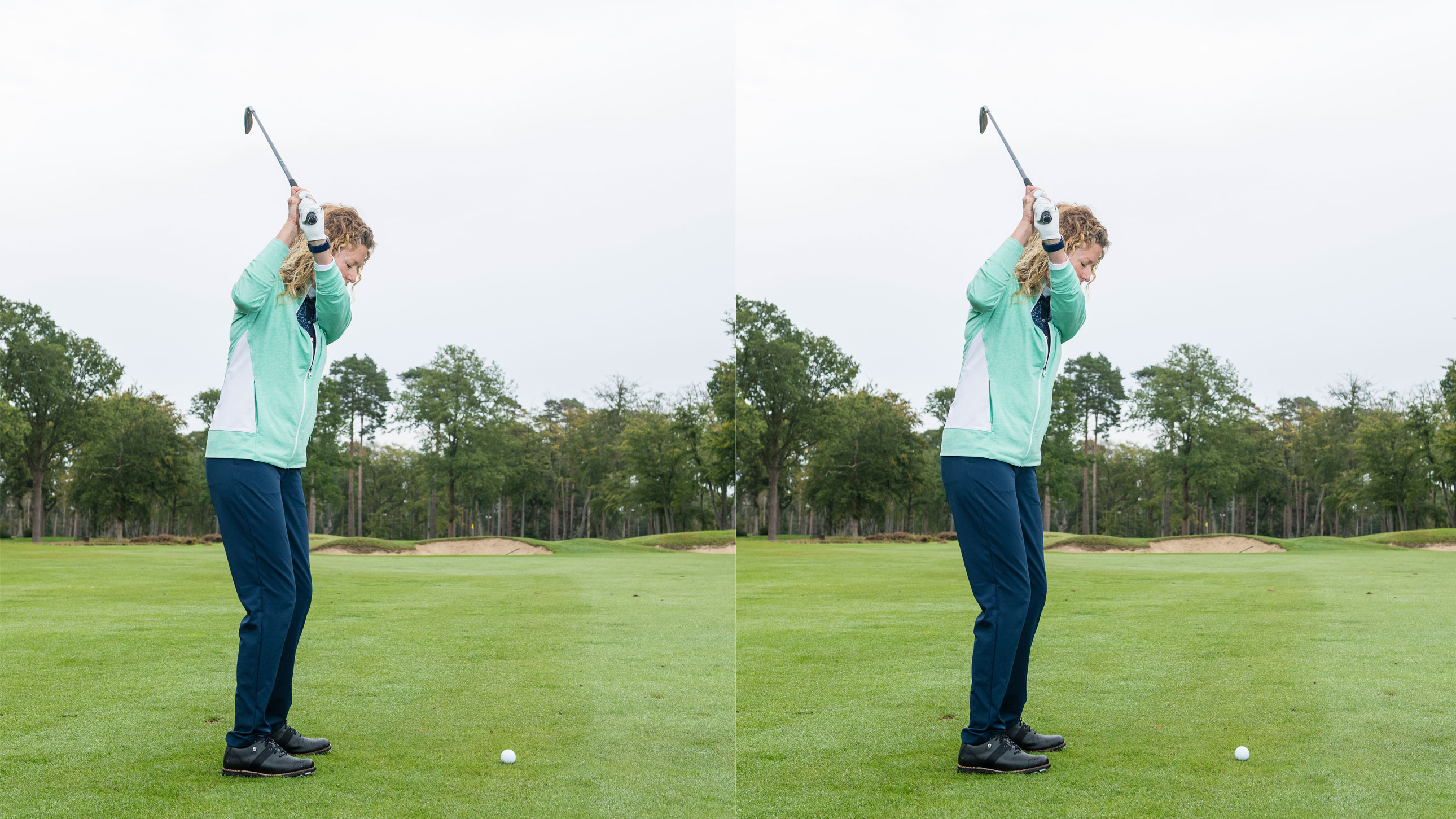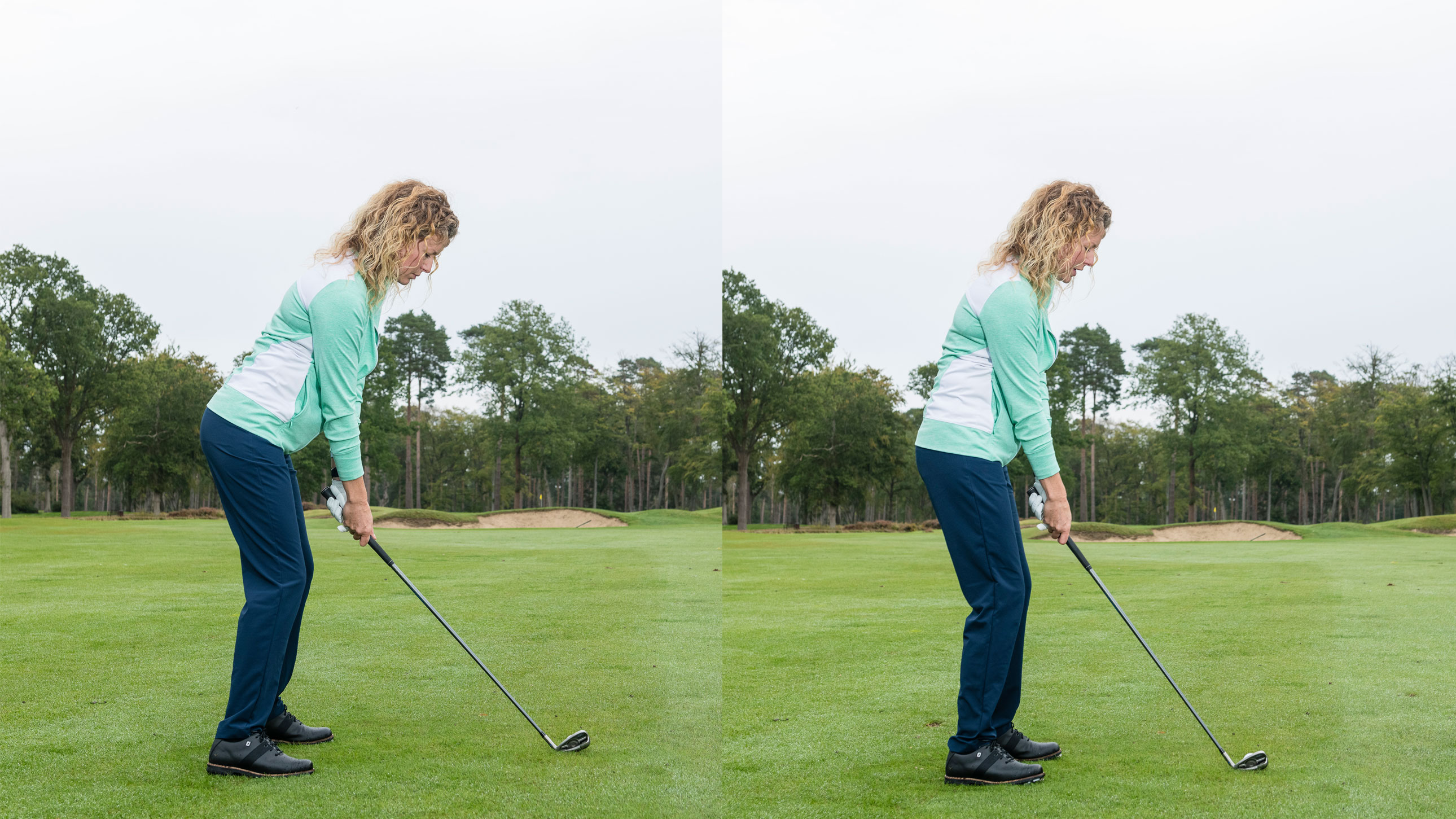Golf Downswing Sequence Explained
PGA pro Katie Dawkins discusses the importance of the golf downswing sequence



Subscribe to the Golf Monthly newsletter to stay up to date with all the latest tour news, equipment news, reviews, head-to-heads and buyer’s guides from our team of experienced experts.
You are now subscribed
Your newsletter sign-up was successful
Want to add more newsletters?

Delivered daily
Daily Newsletter
Sign up for all the latest tour news, gear reviews, head-to-heads and buyer’s guides plus features, tips from our top 50 coaches and rules advice from our expert team.

Once a week
Kick Point
Sign up to our free Kick Point newsletter, filled with the latest gear reviews and expert advice as well as the best deals we spot each week.

Once a week
Women's Golf Edit
Sign up to our free newsletter, filled with news, features, tips and best buys surrounding the world of women’s golf. If you’re a female golfer, you won’t want to miss out!
Golf Monthly created this content as part of a paid partnership with Garmin. The contents of this article are entirely independent and solely reflect the editorial opinion of Golf Monthly.
Of all its intricate parts, starting the downswing is the last place you want to have any swing thoughts - it's a recipe for disaster. Yet, it’s often approaching impact where technical aspirations creep in. Advanced PGA pro and Golf Monthly Top 50 Coach Katie Dawkins explains the do's and don'ts in the video and article below...
Not only will swing thoughts in the downswing result in tension and a loss of accuracy, but it can also cause the natural flow of the swing that is so crucial for generating power to be lost. Consider how you would answer the following…
* Do your longer irons all go a similar distance?
* Does it feel like a lot of effort is going in for not a lot of distance in return?
* Do you cut across the ball through impact and hit a lot of slices?
If the answer is yes to one or more of these questions, then pay attention. The key to achieving maximum power with minimal effort is getting the sequence of moves right in your downswing. And like any act where you are looking to propel an object towards a target, you want the sequence to work from the ground up.
Master this in golf and the benefits are countless. For starters, you will increase your clubhead speed, you’ll be able to square the club at impact far easier, and you’ll launch it a good distance.

At the beginning of an effective downswing, the weight should shift forward
In simple terms, an efficient downswing should start with your weight shifting onto the front foot. Then your hips and then your chest turn towards the target. This is followed by the cracking of the whip as the arms and hands release the club and extend through the ball and down the target line. This is a chain reaction of different movements, that when timed correctly, deliver the sort of easy power we see all the time on Tour.
Subscribe to the Golf Monthly newsletter to stay up to date with all the latest tour news, equipment news, reviews, head-to-heads and buyer’s guides from our team of experienced experts.
During practice, it is worth using technology to track your tempo. The Garmin Approach S70 includes a Tempo Training activity and this, partnered with the Garmin Approach R10 launch monitor swing statistics, can help to offer important feedback for the rhythm of your swing as a whole. You can use this if you are making downswing changes to see how different moves are affecting your clubhead speed. The idea is to get to a point where you are delivering more force through impact without feeling as if you are swinging any faster.
Downswing sequence mistakes
Known as the “kinematic sequence”, and I tend to see this happening out of order in higher handicappers or beginners.
Chief among the faults is a tendency to start the downswing by throwing or casting the arms out and forfeiting any stored power. It’s as though the body has gone to sleep and is also a common cause of the dreaded slice.

Throwing the arms out coming down will result in a loss of power and accuracy
So why does this happen? Sometimes it can be a physical limitation - a bad back or immobility in the hips - but it could also be the consequence of a poor set-up.
Even assuming you are in peak condition, nailing an efficient downswing is very difficult from a poor address position. This applies to the best players in the world just as much as the rest of us.
Be ready to run when stood over the ball, don’t sit back on your heels. Your downswing is a reaction to your backswing, so be athletic and you’ll be able wind and unwind powerfully, posing in perfect balance at the end.

A good set-up position (left) should look athletic, while a bad one (right) will make it hard to generate power
Golf downswing drills
Imagine for a moment you are in Yankee stadium poised to hit a home run. Make a few practice swings standing like this with your driver. You'll be amazed at how your body moves when swinging at hip height ready to smash a gong or bash a baseball - it's a great drill for people who struggle to shift their weight coming down. A few of these before you hit your first tee shot will wake up those bigger muscles and have your drives flying.
It’s also worth saying that everyone is different. As the world's best have proved, an efficient downswing is possible from many different positions at the top of the swing.
So if we focus on just the body for a second, simply thinking about turning through to a finish can really help with that first step as the weight shifts onto the front foot. It’s something many golfers who come to see me complain about, yet they rock up with very little athletic angle in their address position.
Another great drill is to make some swings with an iron but without a ball. As you reach the top of your backswing, let you lead foot step towards your back foot (you should have your legs together at the top). Then, as you start down, your lead foot should step back into its original position. This is a really simple drill that forces the correct weight movement from the top - it is a great one for those who tend to come over the top at the start of the downswing.
Try these simple moves to trigger a much more powerful and effective downswing!

Katie is an Advanced PGA professional with over 20 years of coaching experience. She helps golfers of every age and ability to be the best versions of themselves. In January 2022 she was named as one of Golf Monthly's Top 50 Coaches.
Katie coaches the individual and uses her vast experience in technique, psychology and golf fitness to fix problems in a logical manner that is effective - she makes golf simple. Katie is based in the South of England, on the edge of the New Forest. An experienced club coach, she developed GardenGOLF during lockdown and as well as coaching at Iford Golf Centre, The Caversham- Home of Reading Golf Club and Salisbury & South Wilts Golf Club.
She freelances, operating via pop-up clinics and travelling to clients homes to help them use their space to improve.
She has coached tour pros on both LET tour and the Challenge Tour as well as introduced many a beginner to the game.
Katie has been writing instructional content for magazines for 20 years. Her creative approach to writing is fuelled by her sideline as an artist.
Katie's Current What's In The Bag
Driver: TaylorMade Qi10 9degrees.
Fairway: TaylorMade Qi10 5wood
Hybrid: TaylorMade 4 & 5
Irons: TaylorMade 770 6-AW
Wedges: TaylorMade Tour Grind 4 54 & 58
Putter: TaylorMade Tour X 33"
Favourite Shoes: FootJoy HyperFlex with Tour Flex Pro Softspikes on the course.